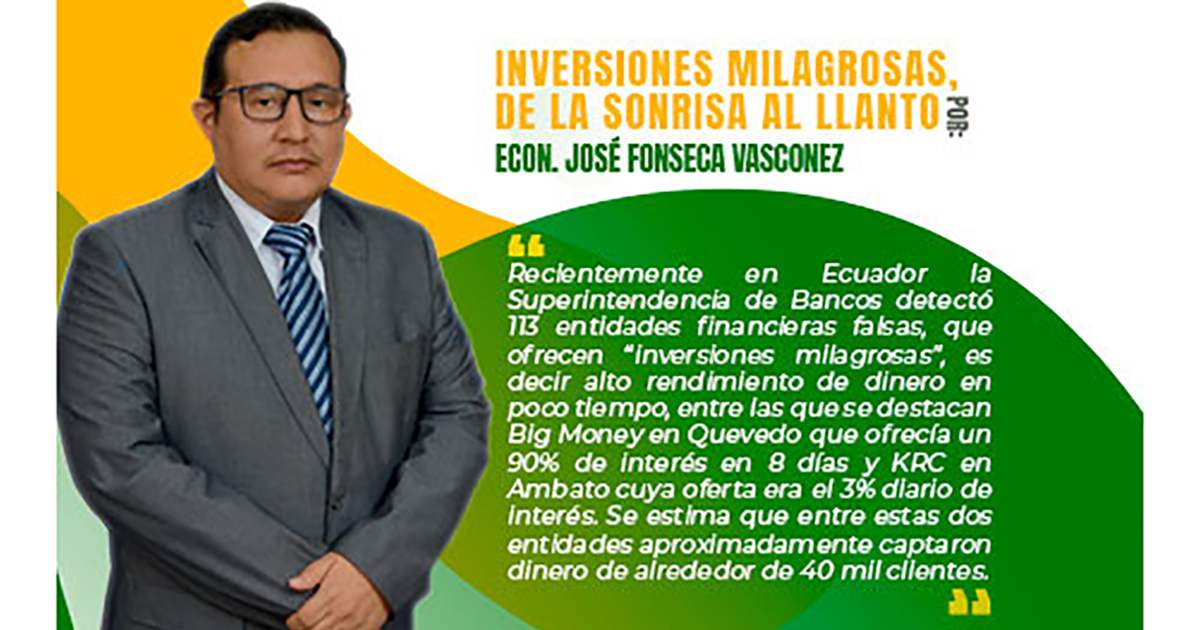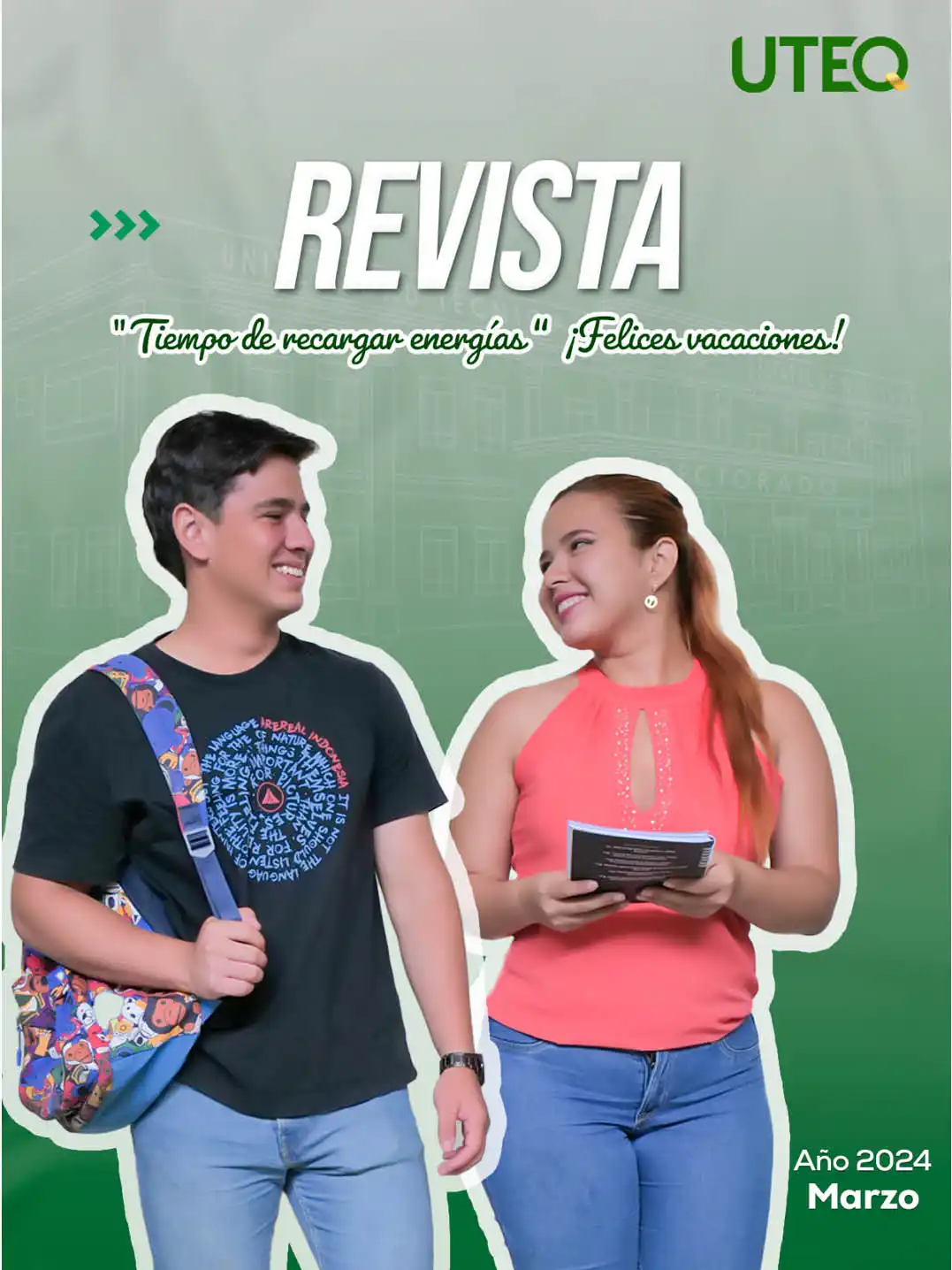Miraculous investments, from smiling to crying
Published on 07 from August from 2021

Far from social, ideological differences, creed or skin colour, all human beings have dreams that require economic investment in order to become a reality.
Whenever we talk about money, the variable, time, is always present. At that precise moment, the question arises: how long will it take to get the money I need, and the answer will always be, the sooner the better!
To obtain financing and make dreams come true, there are two ways, legal and illegal; the legal way is the one that responds to productive activities regulated by constitutional regulations; therefore, the illegal way is the opposite, the latter generally seduces two groups of people: those who consciously seek easy money and those with limited economic and financial knowledge.
In this context, as a result of the covid-19 pandemic, in Ecuador, Mexico, Peru, Colombia, Argentina, the USA and Italy, illegal money collectors have been detected to be proliferating more and more, offering high returns in a short period of time.
Recently in Ecuador, the Superintendence of Banks detected 113 false financial entities offering 'miraculous investments', that is to say, high yields in a short time, among them 'Big Money' in Quevedo, which offered 90% interest in 8 days, and KRC in Ambato, which offered 3% daily interest.
The profit margin offered by the illegal money collectors "at first glance" leads one to suspect that this is a swindle, considering that, in the national financial system, profitability does not exceed 10% per annum. If we methodologically establish a relationship between the rate of capture and placement. According to the Economic Commission for Latin America and the Caribbean (ECLAC), the annual monetary flow of these illegal financial entities is between $150 and $200 million.
However, this history of investments and miraculous profits is not new in the country. Approximately 16 years ago, more than 30,000 people were attracted by the profits of between 7% and 12% per month offered by the second notary of Machala, José Cabrera (+). It is estimated that during the 10 years that this system operated, it managed around $800 million. If we compare at that time the Banco de Pichincha handled $1,350 million in deposits, while the Banco de Guayaquil, $700 million.
It was 2018, when approximately 60,000 people in the province of Cotopaxi were harmed, because they were seduced by the temptation of easy money and the possibility of getting out of poverty 'overnight', based on the cryptocurrency market. It is estimated that $2 billion of Ecuadorians' wealth has been lost through scams in the last 10 years. The number of people affected ranges between 200,000 and 300,000 people, because their contributions are not only individual, but also collective to "invest".
But why do people take the risk and end up looking for easy money or why do they invest in such a sophisticated and unknown market as cryptocurrencies? Cryptocurrencies are an unregulated financial activity with a high probability of loss.
From behavioural economics, the psychologists Tversky and Kahneman, winners of the Nobel Prize in Economics (2002), demonstrated that people who have a high expectation that their "status quo" may change radically, are willing to take the risk, without considering the future consequences. In the short term these people often suffer from 'Saramago-style blindness' and live delighted by the gains, but in the medium and long term the "investors" may shed "tears like a Magdalene" over the loss of their wealth.
Therefore, if you want to improve your lifestyle, you must always work. Do not participate in pyramids and gambling, as there are other ways to grow your money legally, without putting your wealth at risk.

